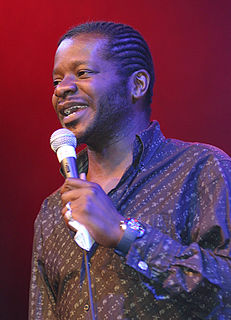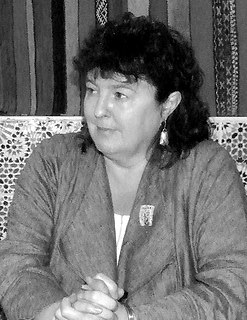A Quote by John le Carre
I grew up in a completely bookless household. It was my father's boast that he had never read a book from end to end. I don't remember any of his ladies being bookish. So I was entirely dependent on my schoolteachers for my early reading with the exception of The Wind in the Willows, which a stepmother read to me when I was in hospital.
Related Quotes
I grew up in a completely bookless household. It was my father's boast that he had never read a book from end to end. I don't remember any of his ladies being bookish. So I was entirely dependent on my schoolteachers for my early reading with the exception of 'The Wind in the Willows,' which a stepmother read to me when I was in hospital.
The waitress comes over to me like, 'What'chu readin' for?' I had never been asked that. Not 'What am I reading?' but 'What am I reading for?' Goddammit, you stumped me. Hmm, why do I read? I suppose I read for a lot of reasons, one of the main ones being so I don't end up being a... waffle waitress.
There is only one way to read, which is to browse in libraries and bookshops, picking up books that attract you, reading only those, dropping them when they bore you, skipping the parts that drag-and never, never reading anything because you feel you ought, or because it is part of a trend or a movement. Remember that the book which bores you when you are twenty or thirty will open doors for you when you are forty or fifty-and vise versa. Don’t read a book out of its right time for you.
I read John Irving's novel 'The World According To Garp' when I was about 14 or 15. It was the first grown-up book that I had read. It is the story of a young man who grows up to be a novelist. I finished it, and I wanted to write a book that made the reader feel the way I felt at the end of that, which was sort of both bereft and elated.
I suppose that it was inevitable that my word-base broadened. I could now for the first time pick up a book and read and now begin to understand what the book was saying. Anyone who has read a great deal can imagine the new world that opened. Let me tell you something: from then until I left that prison, in every free moment I had, if I was not reading in the library, I was reading in my bunk. You couldn’t have gotten me out of my books with a wedge...Months passed without my even thinking about being imprisoned. In fact, up to then, I never had been so truly free in my life.
I grew up in a bookless house - my parents didn't read poetry, so if I hadn't had the chance to experience it at school I'd never have experienced it. But I loved English, and I was very lucky in that I had inspirational English teachers, Miss Scriven and Mr. Walker, and they liked us to learn poems by heart, which I found I loved doing.
He had never been interested in stories at any age, and had never quite understood the basic concept. He'd never read a work of fiction all the way through. He did remember, as a small boy, being really annoyed at the depiction of Hickory Dickory Dock in a rag book of nursery rhymes because the clock in the drawing was completely wrong for the period.
The first comic I can remember ever reading was a 'Fantastic Four' issue that my dad bought out of the drugstore once. The thing that struck me about it was that the ending wasn't an ending. It was essentially a cliffhanger. It was the first time I had ever read anything like that, where you read a book, but the book isn't the book.



































